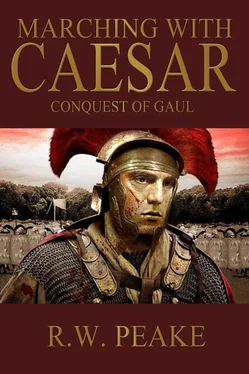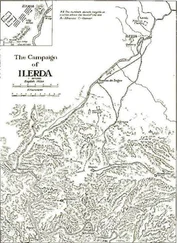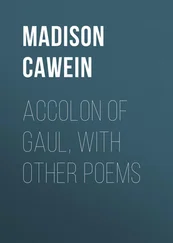R. Peake - Marching With Caesar - Conquest of Gaul
Здесь есть возможность читать онлайн «R. Peake - Marching With Caesar - Conquest of Gaul» весь текст электронной книги совершенно бесплатно (целиком полную версию без сокращений). В некоторых случаях можно слушать аудио, скачать через торрент в формате fb2 и присутствует краткое содержание. Жанр: Исторические приключения, на английском языке. Описание произведения, (предисловие) а так же отзывы посетителей доступны на портале библиотеки ЛибКат.
- Название:Marching With Caesar: Conquest of Gaul
- Автор:
- Жанр:
- Год:неизвестен
- ISBN:нет данных
- Рейтинг книги:3 / 5. Голосов: 1
-
Избранное:Добавить в избранное
- Отзывы:
-
Ваша оценка:
- 60
- 1
- 2
- 3
- 4
- 5
Marching With Caesar: Conquest of Gaul: краткое содержание, описание и аннотация
Предлагаем к чтению аннотацию, описание, краткое содержание или предисловие (зависит от того, что написал сам автор книги «Marching With Caesar: Conquest of Gaul»). Если вы не нашли необходимую информацию о книге — напишите в комментариях, мы постараемся отыскать её.
Marching With Caesar: Conquest of Gaul — читать онлайн бесплатно полную книгу (весь текст) целиком
Ниже представлен текст книги, разбитый по страницам. Система сохранения места последней прочитанной страницы, позволяет с удобством читать онлайн бесплатно книгу «Marching With Caesar: Conquest of Gaul», без необходимости каждый раз заново искать на чём Вы остановились. Поставьте закладку, и сможете в любой момент перейти на страницу, на которой закончили чтение.
Интервал:
Закладка:
The Gauls were busy as well; the cavalry that escaped the town scattered to the four winds going to their respective people to sound the call for reinforcements to hurry to Alesia. In preparation for this, Caesar stepped up the foraging effort, ordering that a reserve of 30 days’ supply be laid on, in the anticipation that we would be cut off from food when the inevitable relief column arrived. Work continued on improving the fortifications, through all watches, towers being erected every 120 yards, while smaller turrets that could house a single scorpion and serve as a shelter for the sentries were set every 80 feet. Several deserters informed us that all the Gallic food was brought into one place, to be rationed by Vercingetorix, and there were barely 30 days’ rations left. This told us that we could expect some sort of relief effort almost any day; everything depended on how quickly the Gauls could gather their forces and set out on the march. Every day we worked on the fortifications, strengthening them in preparation for the coming onslaught, while almost every night the Gauls sent out a sortie from their camp in an attempt to disrupt our work and to affect a breach at some point in our fortifications. It was clear to all of us that Vercingetorix was determined to attempt a breakout of some sort, whether it was on his own or with the assistance of the relieving army. The forces coming to the relief of the Gauls were gathering in the lands of the Aedui, and such was the valor and notoriety of Vercingetorix by this point that of the 45 different tribes that inhabited Gaul, 44 sent contingents of men of varying size, so that the army that gathered numbered 250,000 infantry and 8,000 cavalry. Only the Bellovaci refused to send a contingent of any size, claiming that they preferred to deal with Caesar and his army on their own. But it was who was at the head of this vast army that angered us. Because of the tribal jealousies, the Gallic army had to be led by four different generals, and when we learned their identities it only strengthened our resolve. One of them was Commius, who traveled with us to Britannia; another two were the faithless bastards Eporedorix and Viridomarus. The fourth was the only one that we understood and held no malice towards, and that was the cousin of Vercingetorix, Vercassivellaunus, who was only marching to the aid of his kin, something that we understood and accepted. Despite managing to gather relatively quickly, moving such a vast host takes not only a fair amount of time but a huge amount of food and water, and to administer such a force the Gauls selected tribal elders to oversee the administration of the feeding and care of the army. It was this council with which the generals had to contend on a daily basis, meaning there were disputes almost every day, according to the deserters and scouts we managed to capture. Whatever disputes there may have been, the Gallic army was still approaching.
For once, the situation inside the walls was more desperate than outside; while we were forced to range farther and farther for food, the people stuck in Alesia had no way to resupply and with every day that went by, their plight became more serious. The relief force was moving towards us, their whereabouts easy to track because of the huge size of the army, and it was the topic of conversation around every fire.
“So there’s about 80,000 men on that side,” Atilius mused, looking in the direction of the town. “And there’s, what, 250,000 heading towards us from that direction,” he pointed in what was essentially the opposite direction. “So, that would be………” his face wrinkled up as he tried to work the sum out in his head.
Because Scribonius had helped me learn how to calculate sums I wanted to show off a bit, so before he could answer, I replied, “That’s 330,000 men that we have to kill.”
We sat silent for a moment, I think all of us stunned at the thought of facing an army of such momentous size.
“And what’s our strength, Pullus?”
For a moment I considered the idea of adding to the sum of our forces, but immediately dismissed it. There was no sense lying to my own men, so I replied, “We have ten Legions, but we’re all understrength to one point or another. I can tell you that the 10th can field about 3,800 men; we have more than a hundred out of action for one reason or another. I haven’t heard but I’m guessing that most of the other Legions are in the same shape, so we can probably field about 40,000 Legionaries. We have about 8,000 auxiliaries, and about 3,000 cavalry. So that’s about 51,000 men.”
“To face 330,000?”
Vellusius sat glumly, throwing twigs into the fire as he asked his questions.
“So, that means we have to kill how many of those bastards apiece?”
“About seven,” I said quietly, for I had done the figuring on this the day we heard about the size of the relief column.
“Well, that’s a whole lot of killing to do. I think I’m going to turn in early,” I tried to sound cheerful, waving goodnight to my comrades, eager to be away and free to think my own thoughts.
The day before the relief army arrived, an event took place that was difficult to watch, even for hardened Legionaries like ourselves. Early in the morning, the gates of the town were flung open; amid a cacophony of howls and cries of protest, a pathetic group of people, obviously civilians and either too old or too young to fight were forcibly ejected from the town. It turned out that this poor lot was none other than the Mandubii, the tribe to which the town of Alesia belonged, and their guests were expelling them by force. This was the most concrete sign of the state of Gallic supply; there was no other reason for these people to be ejected other than to save what little food was left. The mass of people, about 20,000 in all, were pushed along towards our lines, causing the alarm to be sounded and a scramble to man the walls. When they reached the first ditch, they stopped and cried out to our men on the wall, with those civilians who could speak Latin asking to be allowed to leave, saying that they had no part in this and were just innocent victims. Word was sent to Caesar, asking for instructions, but he refused to allow them to depart, not wanting to relieve the pressure on the Gauls in any way. The cries and lamentations of the Mandubii carried all the way to our positions, where we stood watching as the mass of people milled about, not able to leave the siege, but not able to go back into the town. A few tried to force their way back in, and were cut down by their own warriors, dissuading the rest from trying the same thing. They were not allowed to remain in the camps of the Gallic army either, so they wandered to the far eastern side of the siege, sitting down to await their fate.
“That Vercingetorix is a hard bastard,” the Pilus Prior commented. “Those are his own people he’s doing that to.”
I nodded; while Caesar was essentially doing the same thing, the Gauls were not our people. Their crying and shouting lessened to the point that there was only a dull moan, sounding more or less continuously as the women and children cried softly, bewailing their fate. It was hard to listen to, making nerves already stretched and raw even worse, so it was not long before a number of quarrels broke out among the men. I found myself running from one fight to the next, bashing men about the back and head with my vitus . The only way things calmed down was by the bucina sounding the signal to let us know that an army approached. Instantly, all petty squabbles were forgotten as we ran to the ramparts to get a glimpse of the relief column.
It was the biggest army we had ever seen by far, looking like a black swarm of ants that completely covered the hills to the west, a pall of dust hanging over them like dirty brown rain clouds hovering on the horizon. I was struck by the thought how apt that was, since a storm of sorts was certainly brewing. Once we got a good look at the approaching host, I sent the men back to our area to begin preparations for battle. I did not know exactly when we would hear the call to assemble but it would have to be soon, because we were now effectively cut off and surrounded, with no chance of supply. Back in our area, the men began making themselves ready, as did I, each of us performing by-now familiar rituals. Some of us once again set up our personal shrines with our household gods, making sacrifices to them. Others went to visit the augurs, paying a little extra for a clean liver and good omens. Not being particularly religious, I preferred instead to rely on the things that I could control, like making sure that the blade of my sword was razor sharp, along with that of my dagger, although I had only used it once in battle. I also polished my helmet, along with my phalarae, since it was the practice in Caesar’s army to wear all decorations when we marched into battle. Combing the horsehair plume, oiling my armor and varnishing my leathers, I was lost in thought as I performed what was by now a comforting routine. Once done, I passed the word of a full inspection in a third of a watch, smiling when I heard the sound of cursing move from one tent to another as Zeno relayed the order. Some things will never change, I thought.
Читать дальшеИнтервал:
Закладка:
Похожие книги на «Marching With Caesar: Conquest of Gaul»
Представляем Вашему вниманию похожие книги на «Marching With Caesar: Conquest of Gaul» списком для выбора. Мы отобрали схожую по названию и смыслу литературу в надежде предоставить читателям больше вариантов отыскать новые, интересные, ещё непрочитанные произведения.
Обсуждение, отзывы о книге «Marching With Caesar: Conquest of Gaul» и просто собственные мнения читателей. Оставьте ваши комментарии, напишите, что Вы думаете о произведении, его смысле или главных героях. Укажите что конкретно понравилось, а что нет, и почему Вы так считаете.












